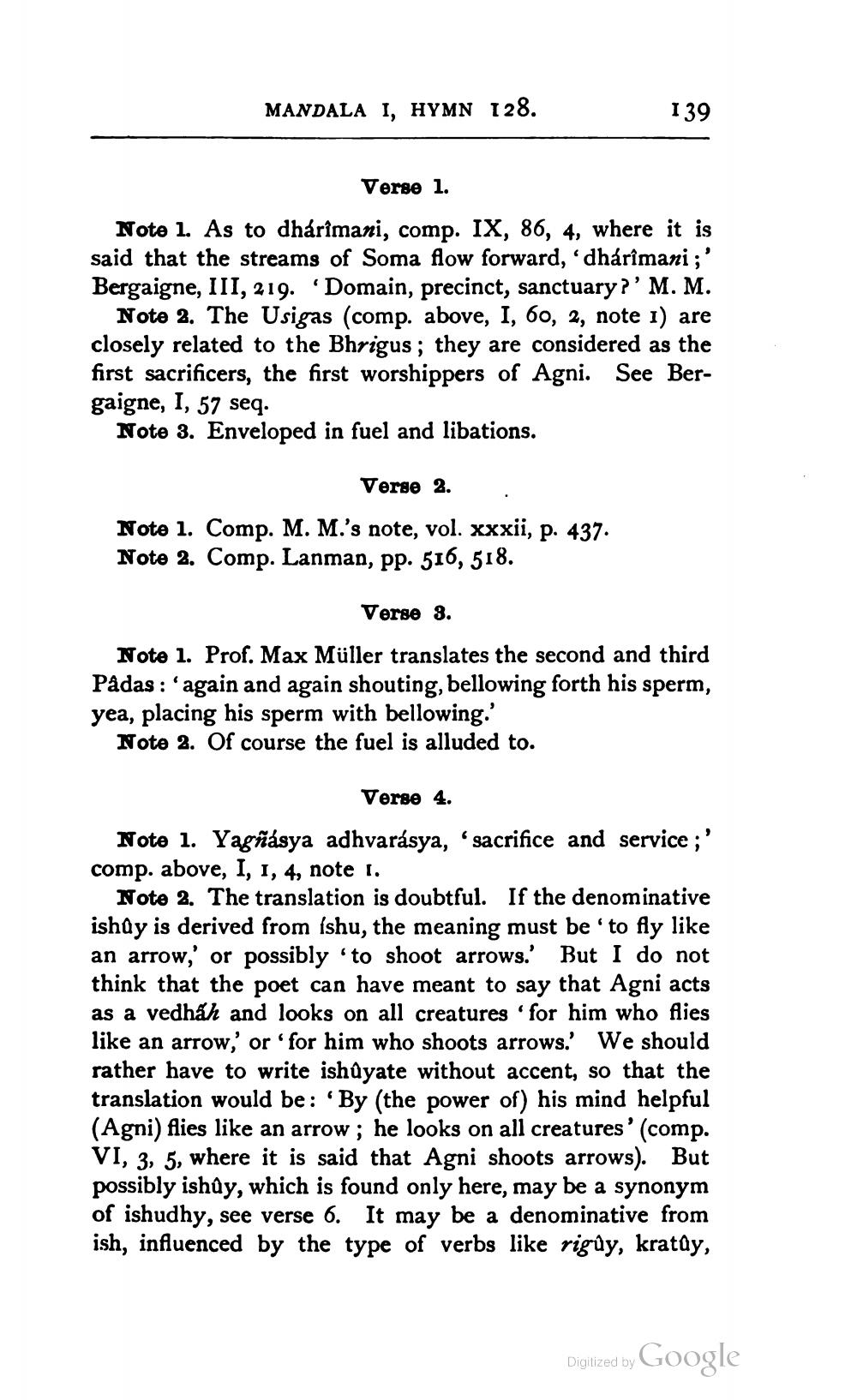________________
MANDALA I, HYMN 128.
139
Verse 1. Note 1. As to dhárimani, comp. IX, 86, 4, where it is said that the streams of Soma flow forward, 'dhárîmani ;' Bergaigne, III, 219. “Domain, precinct, sanctuary?' M. M.
Note 2. The Usigas (comp. above, I, 60, 2, note I) are closely related to the Bhrigus; they are considered as the first sacrificers, the first worshippers of Agni. See Bergaigne, I, 57 seq.
Note 3. Enveloped in fuel and libations.
Verse 2. Note 1. Comp. M. M.'s note, vol. xxxii, p. 437. Note 2. Comp. Lanman, pp. 516, 518.
Verse 3. Note 1. Prof. Max Müller translates the second and third Padas : ‘again and again shouting, bellowing forth his sperm, yea, placing his sperm with bellowing.'
Note 2. Of course the fuel is alluded to.
Verso 4. Note 1. Yagñásya adhvarásya, sacrifice and service;' comp. above, I, 1, 4, note 1.
Note 2. The translation is doubtful. If the denominative ishùy is derived from (shu, the meaning must be 'to fly like an arrow,' or possibly 'to shoot arrows.' But I do not think that the poet can have meant to say that Agni acts as a vedhah and looks on all creatures for him who flies like an arrow,' or 'for him who shoots arrows. We should rather have to write ishûyate without accent, so that the translation would be: 'By (the power of) his mind helpful (Agni) flies like an arrow; he looks on all creatures' (comp. VI, 3, 5, where it is said that Agni shoots arrows). But possibly ishủy, which is found only here, may be a synonym of ishudhy, see verse 6. It may be a denominative from ish, influenced by the type of verbs like rigúy, kratay,
Digitized by Google




